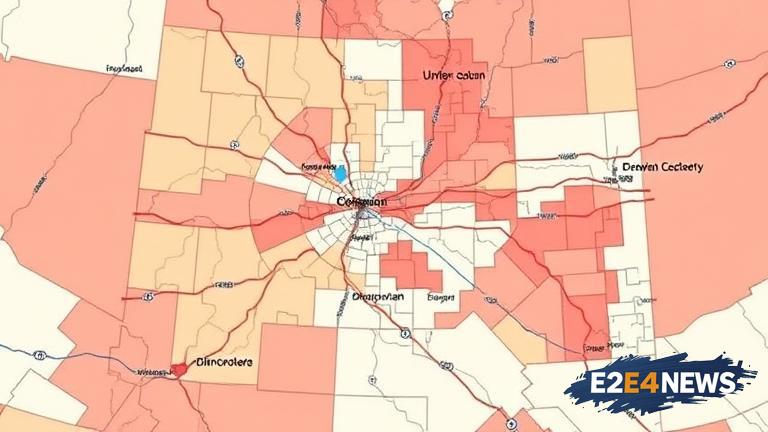In a landmark decision, a Utah judge has ruled that the state’s congressional maps are unconstitutional and must be redrawn. The ruling comes after a lengthy court battle, with plaintiffs arguing that the current maps unfairly favor Republican candidates and dilute the voting power of Democratic voters. The judge agreed, stating that the maps were drawn with partisan intent and resulted in unequal representation for Utah’s citizens. The ruling is a significant victory for voting rights advocates, who have long argued that gerrymandering is a pervasive problem in the United States. The decision is also likely to have far-reaching implications for the state’s political landscape, potentially leading to more competitive elections and a more representative government. The current maps, which were drawn in 2021, have been criticized for packing Democratic voters into a single district and spreading Republican voters across multiple districts. This tactic, known as gerrymandering, can make it difficult for Democratic candidates to win elections, even in years when they receive a majority of the statewide vote. The judge’s ruling is a major blow to Republican lawmakers, who have long controlled the redistricting process in Utah. The decision may also embolden Democrats, who have been working to build a stronger presence in the state. The ruling is not without its challenges, however, as the state will now be required to redraw its maps in a short timeframe. This process will likely involve significant input from lawmakers, voting rights advocates, and other stakeholders. The new maps will need to be approved by the state legislature and signed into law by the governor. The process is expected to be contentious, with different factions vying for influence and control. Despite the challenges, the ruling is a significant step forward for voting rights in Utah. The decision is also likely to have implications for other states, where similar battles over redistricting are ongoing. The ruling may provide a roadmap for other courts to follow, potentially leading to a wave of new rulings and redrawn maps across the country. The impact of the decision will be closely watched by politicians, activists, and citizens alike, as it has the potential to reshape the electoral landscape in Utah and beyond. The ruling is a reminder that the fight for fair representation and equal voting rights is ongoing, and that the courts play a critical role in protecting these fundamental rights. As the state moves forward with the redistricting process, it is likely that there will be significant debate and discussion about the best way to draw the new maps. The ruling has also sparked conversation about the need for redistricting reform, with some advocates arguing that the process should be taken out of the hands of lawmakers and given to an independent commission. Others have suggested that the state should adopt new rules and guidelines to prevent gerrymandering and ensure that the maps are drawn in a fair and transparent manner. The decision is a significant development in the ongoing battle over voting rights and representation in the United States. It is a reminder that the fight for fair and equal representation is ongoing, and that the courts play a critical role in protecting these fundamental rights. The ruling is also a testament to the power of citizen activism and the importance of holding elected officials accountable for their actions. As the state of Utah moves forward with the redistricting process, it is likely that there will be significant attention and scrutiny from the public and the media. The decision has the potential to make a significant impact on the state’s political landscape, and it will be closely watched by politicians, activists, and citizens alike.
